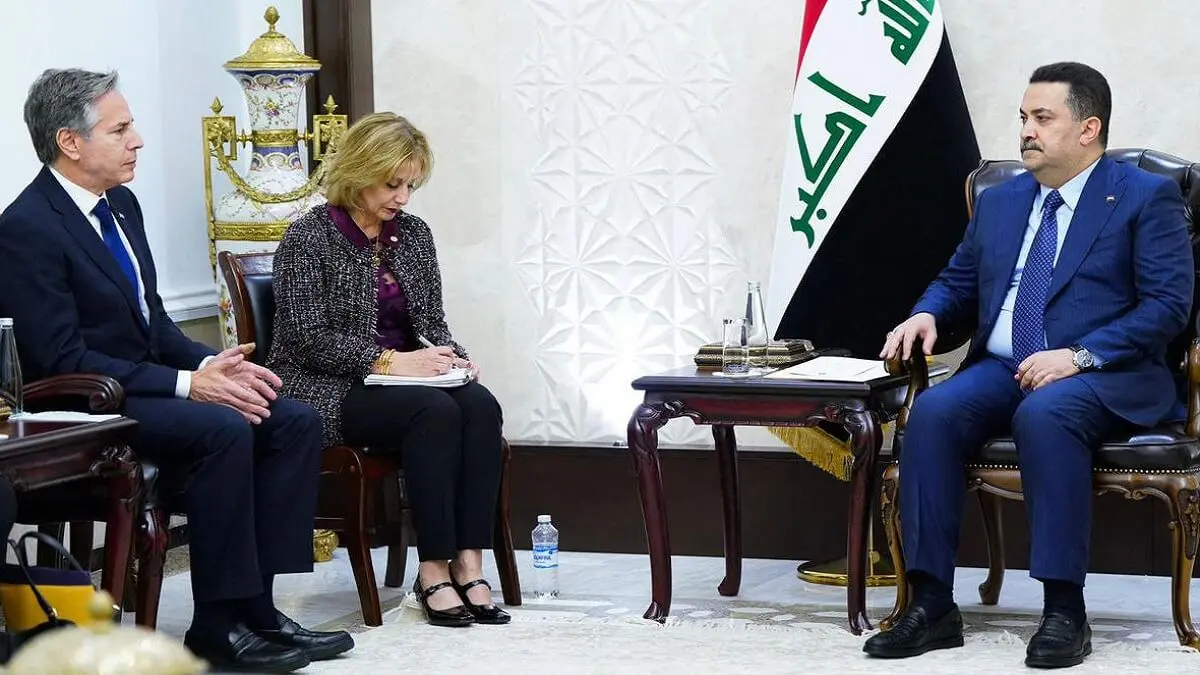Serious warning to Iraq

In Antony Blinken's frantic shuttling between capitals these days, the US Secretary of State found time to show up in Baghdad and have a conversation with Iraqi Prime Minister Mohamed Shia al-Sudaini, which is presumed to have been a very tough one. The stopover is all the more relevant given that several American bases in the former Mesopotamian country have been attacked in recent weeks under the pretext of justifying the US's strong support for the State of Israel in its war against Hamas.
The so-called Islamic Resistance Movement of Iraq, Kataib Hezbollah, had threatened "an unprecedented escalation" of such attacks. One of the organisation's leaders, Abu Ali al-Askari, had even clarified the main objective of such a systematic increase in attacks: "to undermine US interests in Iraq".
All of Blinken's diplomatic efforts are aimed at preventing the war in the Gaza Strip from spilling over into a region-wide conflagration. Iraq is a key player in this likely spill-over, as its majority Shia population and government are affectively, culturally and even economically sided with Iran, a proven mentor of Hamas in Palestine and Hezbollah in Lebanon.
Blinken wants to nip Iraqi involvement in the bud and has reportedly threatened the head of the Baghdad government with strong reprisals if such escalation persists. It is not for nothing that the imposing US naval force deployed in the eastern Mediterranean has a brutal firepower to once again sow ruins in the areas from which terrorist operations against US bases are launched.
At the same time, Blinken seems to be already preparing for the post-war period in Gaza. He discussed this in Amman with his diplomatic colleagues from Saudi Arabia, Qatar, Egypt, the United Arab Emirates, Jordan and the Palestinian National Authority. Particularly important was the unplanned meeting with Mahmoud Abbas, President of the Palestinian National Authority. Israel's neglect of him throughout most of his term in office may be coming to an end. Annihilating Hamas, as Israel intends, will not make the Palestinian people disappear as well, and a solution will have to be found with them. The most logical solution would therefore be to strengthen the PNA and for it to take control of the Gaza Strip and enjoy greater recognition than it currently enjoys in the occupied West Bank.
Mahmoud Abbas has already reportedly confided to Blinken his readiness to take such control in both territories, in addition to occupied East Jerusalem. It would be an interim Palestinian administration, albeit with Hamas excluded from it. Blinken would have the task of convincing Netanyahu that such a design is the only truly viable one for the immediate post-war phase, a phase that neither the Israeli prime minister nor his war cabinet, let alone the radical ministers of his government, are at all in favour of initiating, especially as long as Hamas does not release the more than 240 Israeli citizens kidnapped in the 7 October attack.
Other scenarios evoked in Blinken's latest whirlwind tour, which has even taken him to Turkey and Cyprus, present many drawbacks for the time being. The most logical scenario, a multinational deployment of UN peacekeepers, is rejected outright by Israel, which has already disqualified its secretary general, Antonio Guterres, for believing that the context in which the Palestinians live was the trigger for Hamas's violent attack. Israel considers such statements to justify terrorist action, which translates into an exclusion of the UN from the post-war solution, at least in its initial phase.
Less forcefully but just as firmly, Israel's Arab neighbours, especially Egypt and Jordan, refuse to manage a temporary administration of the devastated Gaza. In no way do they see themselves in the role of security gendarmes in the Strip, which a former US Middle East negotiator, Aaron David Miller, considers a pipe dream, because "you can't imagine Arab states putting troops on the ground to kill Palestinians".
As long and devastating as wars are, they end, and unless one side wipes the other completely off the map, some agreement must be reached that allows their respective citizens to resume their lives. Such an exit is inexorable and today, Israel could only sign such a hypothetical agreement with a revitalised Palestinian National Authority.



